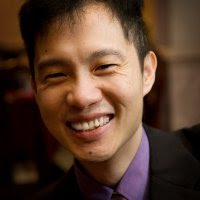Money Matters
While Western traditions says the Father of the Bride will pay for his daughter's wedding, in Chinese tradition, it is the groom's family that pays. The groom will also have to give the bride's family a bride price (禮金) which compensates the lost of their daughter.
Order of the day
Unlike Western traditions where it is thought unlucky for the groom to see the bride before the wedding, in a Chinese wedding, it is the groom's duty to go to the bride's home and bring her back to his parents' home. But before he can enter the bride's house to pick her up, the brides maids would have set up some games to test the groom's worthiness of the bride.
On arriving at the bride's house, the groom will find the door blocked by the bride's maids. Their job is to test the groom (ie make fun of him) for his worthiness. When the games are over, they go into haggling mode, for this is where the groom will have to give a door opening lei-sei (red packet of money) before the girls will let him through the door. This lei-sei will usually have lots of nines in the total, eg £99.99 or £999.99 because nine is thought to sound like longevity in Chinese, so is good luck for the couple.
The Tea Ceremony for the bride's family will take place while the groom is there.
On existing the house, the bride must not step on the door's threshold as that is where the evil spirits lie. So both the bride and groom will take a long stride and step over the threshold. Once outside, the bride should avoid looking back towards the house so mean she would return except for visits.
The wedding carriage nowadays is the usual western style ribbon decorated car.
On arriving at the groom's house, the Mother-in-Law to be and any sisters of the groom will go into their own rooms rather than greet the bride. Supposedly if they met the bride at the door, they will have arguements later on.
Sometimes, there will be a bowl of fire burning on the door step of the house, which the bride will step over for luck, I believe it's to burn away any evil spirits. Don't forget to step over the threshold as well.
Once settled, the new Mother in law and sister in laws may come out of their rooms and greet the bride. The tea ceremony for the groom's family now takes place.
